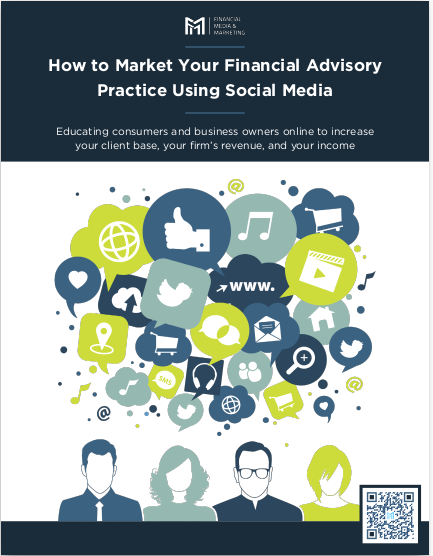The Power of Personal Branding for Insurance Agents
Key Takeaways:
- Personal branding is essential for insurance agents to differentiate themselves, build trust with clients, and establish credibility in a crowded market.
- To create a strong personal brand, agents should define their Unique Selling Proposition (USP), understand their target audience, maintain a consistent online presence, actively network, and stay true to their brand values.
In the fast-paced and competitive world of insurance, establishing a distinctive personal brand can be the key to long-term success and growth. Personal branding isn’t just about having a catchy logo or a polished website; it’s about crafting a unique identity that resonates with your target audience, building trust, and showcasing your expertise. In this comprehensive guide, we will delve deeper into the significance of personal branding for insurance agents and provide you with actionable strategies to create, strengthen, and effectively leverage your personal brand.
The Role of Personal Branding in the Insurance Industry
Standing Out in a Crowded Market
The insurance industry is known for its abundance of agents, each offering various policies and services to potential clients. With so many options available, it can be challenging for insurance agents to distinguish themselves from the competition. This is where personal branding comes into play.
Your personal brand is your unique identity, the sum of your values, expertise, and the way you present yourself to the world. It’s what makes you memorable and helps you stand out in a crowded market. Think of it as your competitive advantage – the reason why clients should choose you over other agents.
Building Trust and Credibility
Trust is paramount in the insurance industry. Clients are entrusting their financial well-being and security to insurance agents, making trust and credibility essential. A well-crafted personal brand can go a long way in establishing and nurturing that trust.
When you have a strong personal brand, it signals to clients that you are a professional who takes their role seriously. It showcases your expertise and commitment to providing the best service possible. Clients are more likely to trust agents who have a consistent and compelling personal brand.
Steps to Create and Strengthen Your Personal Brand
Building a personal brand is a strategic process that requires careful planning and execution. Let’s explore the key steps to help you create and strengthen your personal brand as an insurance agent.
Define Your Unique Selling Proposition (USP)
Your Unique Selling Proposition (USP) is the foundation of your personal brand. It’s what sets you apart from other insurance agents and gives clients a compelling reason to choose you. Your USP could be based on various factors:
- Expertise: Highlight your deep knowledge in a specific area of insurance, such as life insurance, health insurance, or commercial insurance.
- Niche Focus: Specialize in serving a particular niche market, like small businesses, freelancers, or retirees.
- Exceptional Service: Emphasize your commitment to providing exceptional customer service and personalized solutions.
- Local Presence: Showcase your deep ties to a specific geographic area, making you the go-to agent for local residents.
Your USP should resonate with your target audience’s needs and preferences. To identify your USP, consider conducting market research and competitor analysis to uncover gaps you can fill or unique angles you can leverage.
Target Audience Identification
To effectively build your personal brand, you need to know who your ideal clients are. Understanding their demographics, needs, and pain points is crucial. Tailoring your brand to resonate with this specific audience will help you create a more meaningful connection.
Take the time to create detailed client personas – fictional representations of your ideal clients. Define their age, income, family status, goals, challenges, and preferences. Knowing your audience intimately will guide your brand messaging and marketing efforts.
Consistent Branding Elements
Your personal brand should be consistently reflected across all touchpoints – from your website and social media profiles to your business cards and email signature. This consistency helps reinforce your brand identity and makes it memorable to clients and prospects.
Here are some essential branding elements to consider:
- Logo: A professional logo that reflects your brand values and resonates with your target audience.
- Colors: A defined color palette that you consistently use in your marketing materials.
- Messaging: Clear and concise messaging that communicates your USP and value proposition.
When clients encounter your brand across different platforms, they should instantly recognize and associate it with you and your unique offering.
Online Presence and Reputation
In today’s digital age, your online presence is a vital component of your personal brand. It’s often the first point of contact potential clients have with you, making it essential to create a positive and impactful impression.
Professional Website
Think of your website as your virtual office. It’s a place where clients and prospects can learn more about you, your services, and your brand. Your website should be:
- User-Friendly: Easy to navigate, with clear calls to action for contacting you or requesting information.
- Informative: Provide comprehensive information about the types of insurance you offer, your expertise, and your approach to serving clients.
- Visually Appealing: Use visuals, such as images and videos, that align with your brand’s tone and style.
Consider investing in professional website design and optimization to ensure that your online presence reflects your personal brand in the best possible way.
Social Media Presence
Maintaining an active presence on social media platforms relevant to your target audience can help you engage with clients, showcase your expertise, and build your brand’s credibility.
Here are some tips for effective social media branding:
- Consistency: Use consistent branding elements like your logo and colors across your social media profiles.
- Content Sharing: Share informative and valuable content related to insurance, financial planning, and related topics.
- Engagement: Engage with your followers by responding to comments, asking questions, and participating in industry discussions.
- Professionalism: Maintain a professional tone and avoid controversial or divisive topics that could alienate potential clients.
Social media platforms like LinkedIn, Twitter, and Facebook can serve as valuable tools for connecting with your audience and showcasing your personal brand.
Content Marketing
Content marketing is a powerful tool for building your personal brand and establishing yourself as an industry authority. By creating and sharing valuable content, you demonstrate your expertise and provide value to your audience.
Consider the following content marketing strategies:
- Blogging: Write informative blog posts about insurance topics, industry trends, and client success stories.
- Video Creation: Create video content where you explain insurance concepts, share tips, or conduct interviews with experts.
- Webinars and Workshops: Host webinars and workshops to educate clients and prospects about insurance-related subjects.
- E-books and Guides: Offer downloadable e-books and guides that provide in-depth information on insurance topics.
Consistency is key in content marketing. Regularly publishing high-quality content can help you build trust with your audience and position yourself as a go-to resource in the insurance industry.
Networking and Relationship Building
Networking plays a crucial role in personal branding for insurance agents. Building meaningful connections with peers, clients, and industry influencers can help you expand your reach, gain referrals, and solidify your reputation.
Online Networking
Online networking platforms, particularly LinkedIn, offer opportunities to connect with other insurance professionals and potential clients. Here are some strategies for effective online networking:
- Profile Optimization: Ensure your LinkedIn profile is complete, with a professional photo, a compelling headline, and a comprehensive summary.
- Join Relevant Groups: Participate in LinkedIn groups related to insurance, finance, or your specific niche.
- Engage in Discussions: Contribute to group discussions by offering insights, sharing articles, and asking thoughtful questions.
- Connect Strategically: Connect with professionals who are likely to refer clients or collaborate with you.
Active participation in online networking can help you expand your professional network and increase your visibility within the insurance community.
Client Testimonials and Referrals
Client testimonials and referrals are powerful endorsements that can enhance your personal brand. Satisfied clients can become advocates for your services and help you attract new business. Here’s how you can leverage client testimonials and referrals:
- Request Feedback: After successful interactions with clients, ask them for feedback and reviews.
- Display Testimonials: Showcase client testimonials on your website and social media profiles to provide social proof of your expertise and excellent service.
- Referral Program: Create a referral program that incentivizes clients to refer friends, family, or colleagues to your services.
Encourage clients to share their positive experiences and be proactive in asking for referrals to harness the full potential of this branding strategy.
Consistency and Authenticity
Consistency and authenticity are two pillars of effective personal branding. Consistency ensures that your brand remains cohesive across all channels, reinforcing your identity. Authenticity, on the other hand, ensures that your personal brand genuinely reflects who you are and what you stand for.
Be True to Your Brand
Authenticity is about aligning your actions and communication with your brand values. It’s essential to be true to your brand, both in your professional and personal life. When clients perceive authenticity in your interactions, it builds trust and fosters lasting relationships.
Remember that authenticity doesn’t mean being perfect; it means being genuine and transparent. If you make a mistake, own up to it and take steps to rectify it. Authenticity is about being human and relatable, which can resonate strongly with clients.
Measuring Your Brand’s Impact
To determine the effectiveness of your personal branding efforts, it’s essential to measure your brand’s impact. This involves tracking key performance indicators (KPIs) and regularly assessing your progress.
Quantifying Success
Here are some KPIs you can monitor to gauge the success of your personal branding:
- Website Traffic: Analyze the number of visitors to your website and their behavior, such as pages viewed and time spent.
- Social Media Engagement: Track likes, shares, comments, and follower growth on your social media profiles.
- Referral Rates: Measure how many clients come to you through referrals from satisfied customers.
- Client Retention: Assess your client retention rates to determine if your personal brand contributes to client loyalty.
By quantifying your success, you can adjust your branding strategies as needed to maximize your impact.
Evolving Your Personal Brand
Personal branding is not a one-time effort but an ongoing process. The insurance industry evolves, and so should your personal brand. Staying relevant and adapting to changes in the industry is essential for long-term success.
Stay Updated on Industry Trends
To remain relevant, stay informed about industry trends, emerging technologies, and shifts in client expectations. Attend industry conferences, workshops, and webinars to stay up-to-date with the latest developments.
Adjust Your Brand as Needed
As your career progresses or your target audience evolves, you may need to adjust your personal brand. Your USP, messaging, and marketing strategies may require refinement to align with your current goals and circumstances.
Conclusion
In the competitive landscape of the insurance industry, personal branding is your secret weapon. It’s not just about creating a logo or a catchy tagline; it’s about crafting a unique identity that resonates with your target audience, building trust, and showcasing your expertise. By defining your Unique Selling Proposition, understanding your ideal clients, maintaining a consistent online presence, actively networking, and staying true to your brand values, you can establish yourself as a trusted insurance agent. Your personal brand will not only attract clients but also keep them coming back, ensuring long-term success in the competitive world of insurance. Remember that personal branding is an ongoing journey, so continue to refine and adapt it as you grow in your insurance career.
Contact Information:
Email: [email protected]
Phone: 8777993433
Bio:
Stan Collins is a Marketing Specialist based in Arizona that focuses primarily on online branding and digital marketing. In addition to helping financial professionals, real estate agents, and other business professionals generate leads and perfect their online identities, Stan Collins also writes educational content about marketing.










